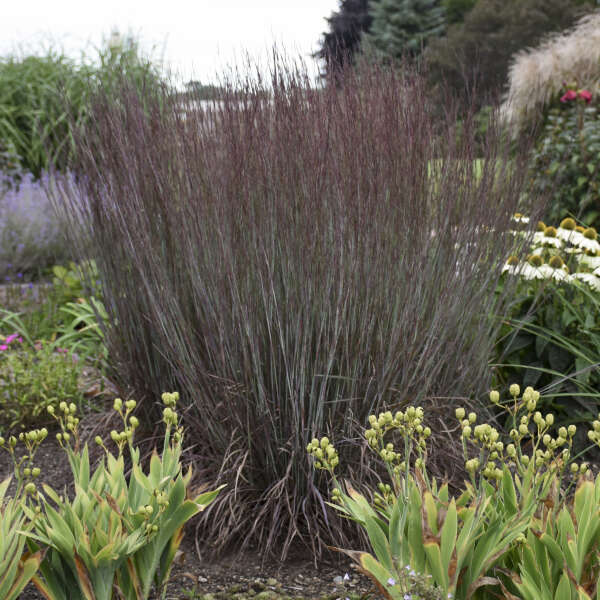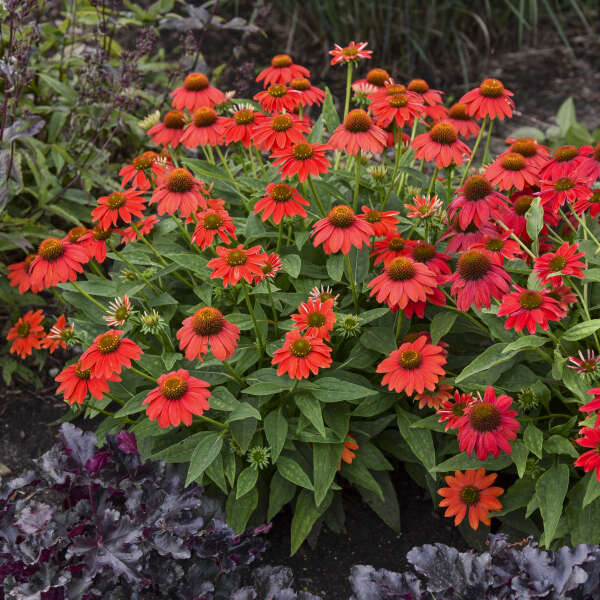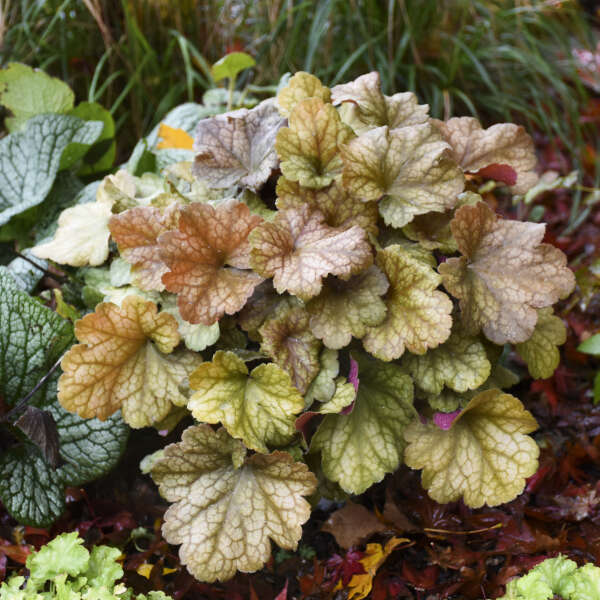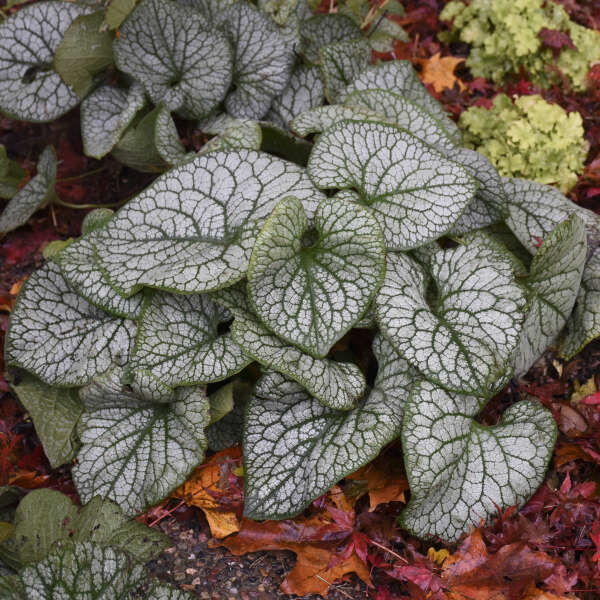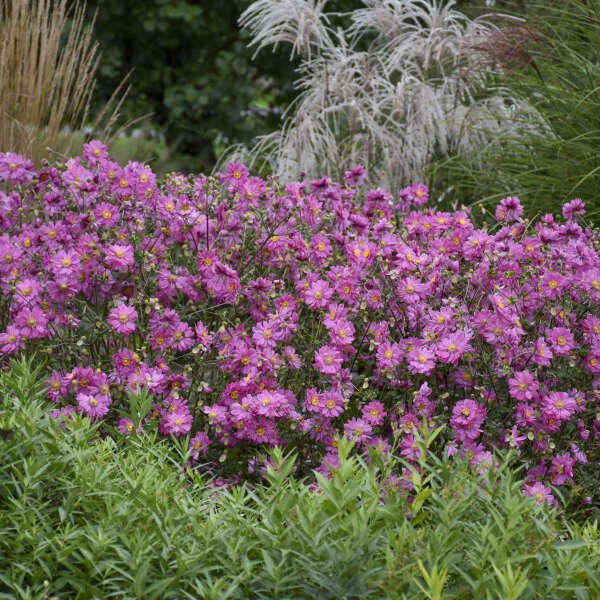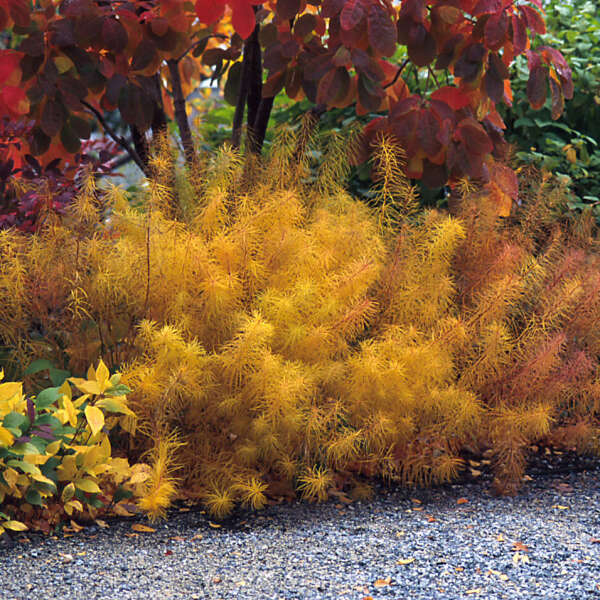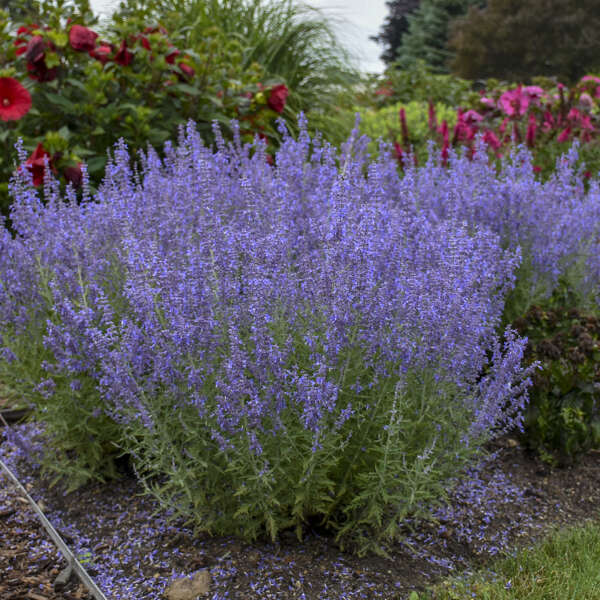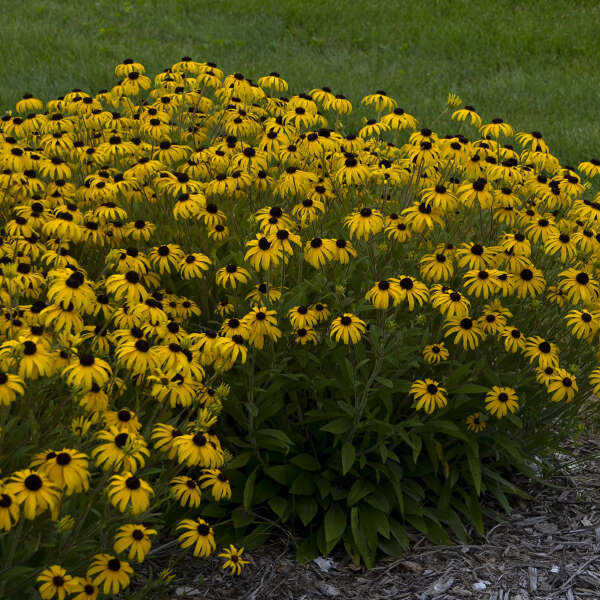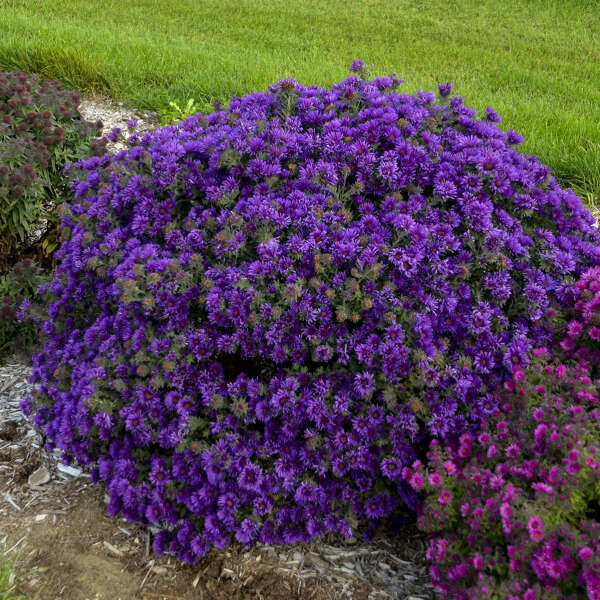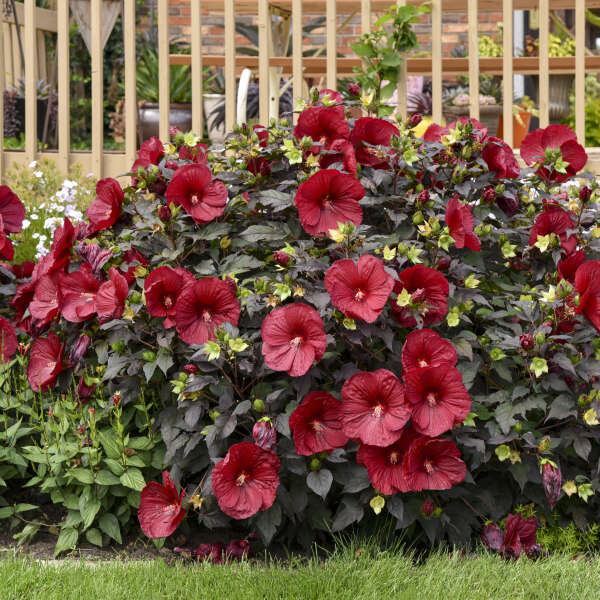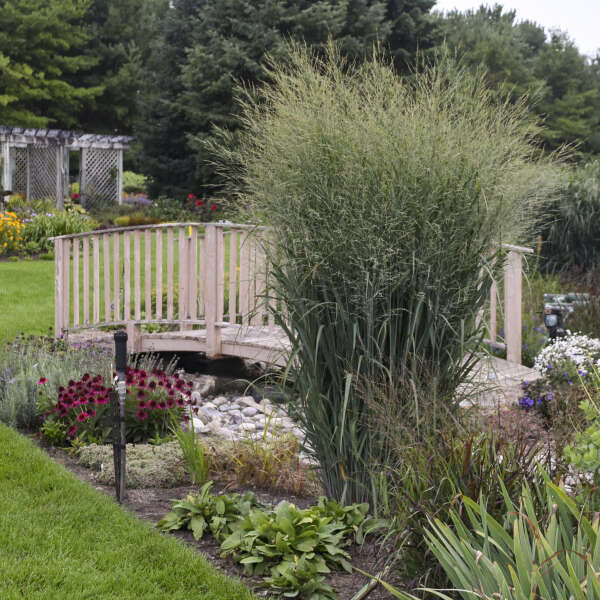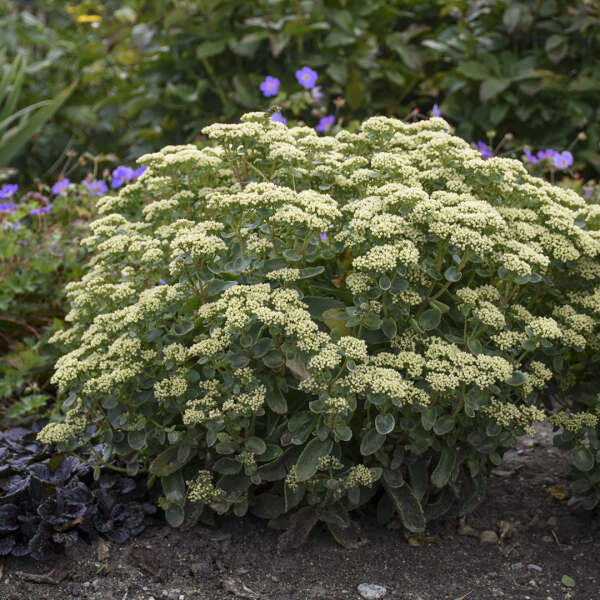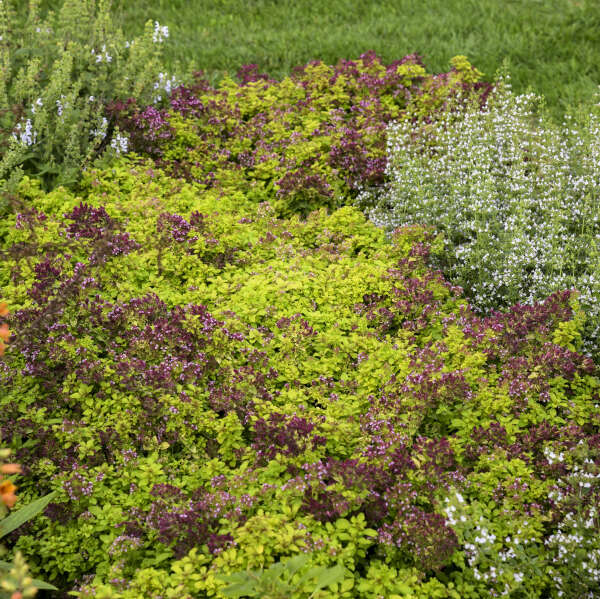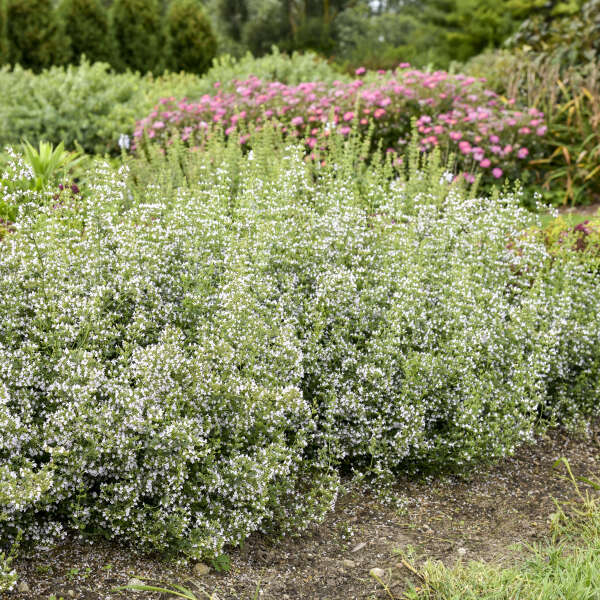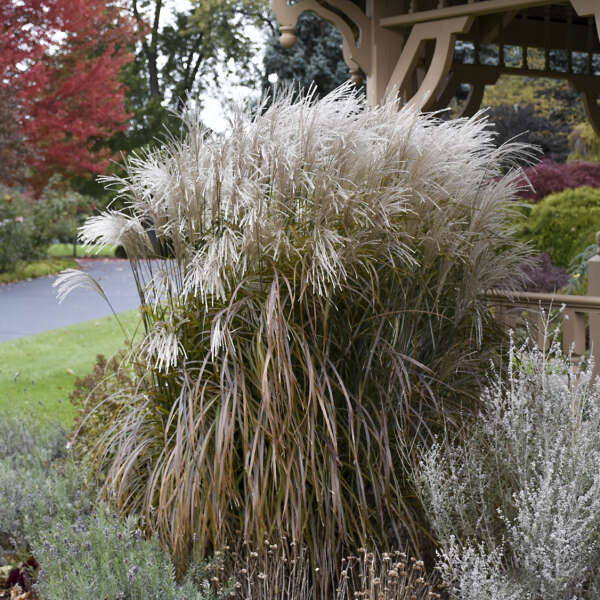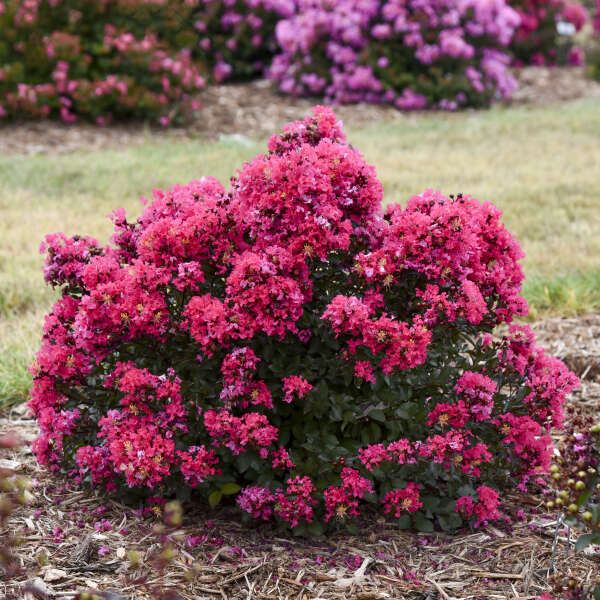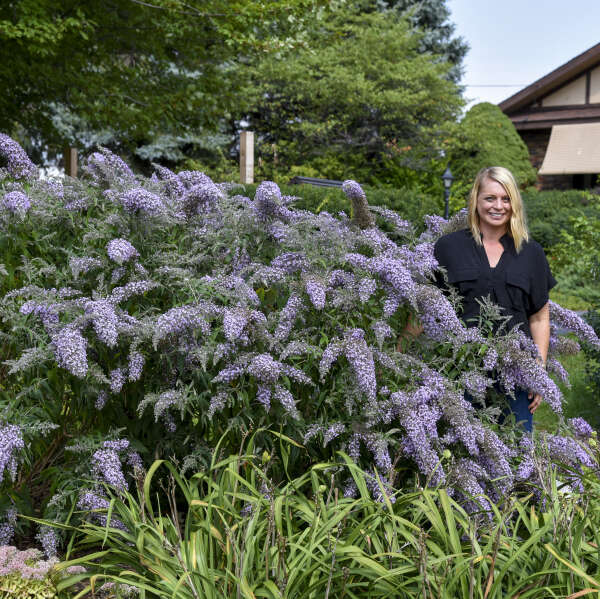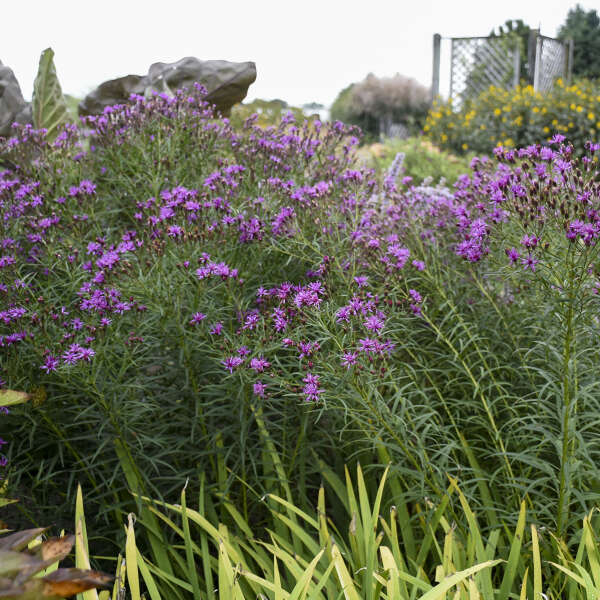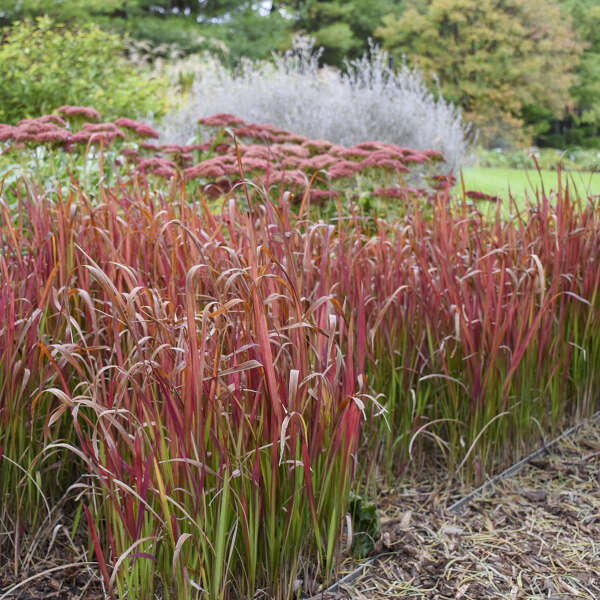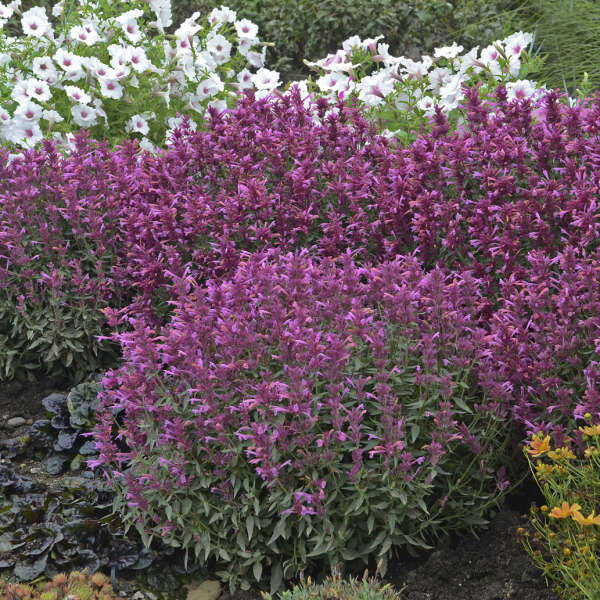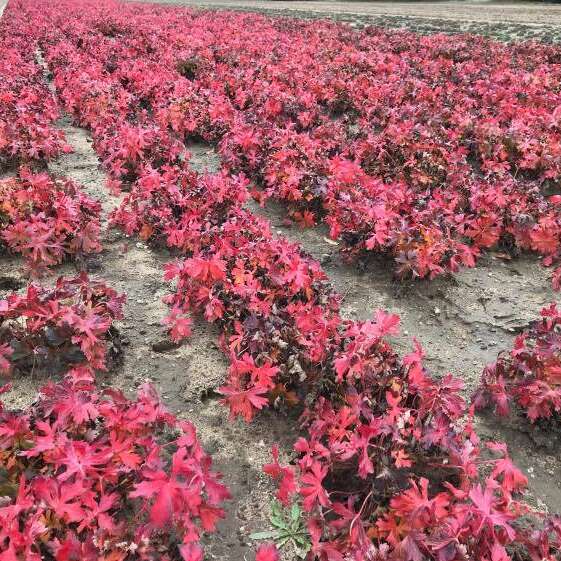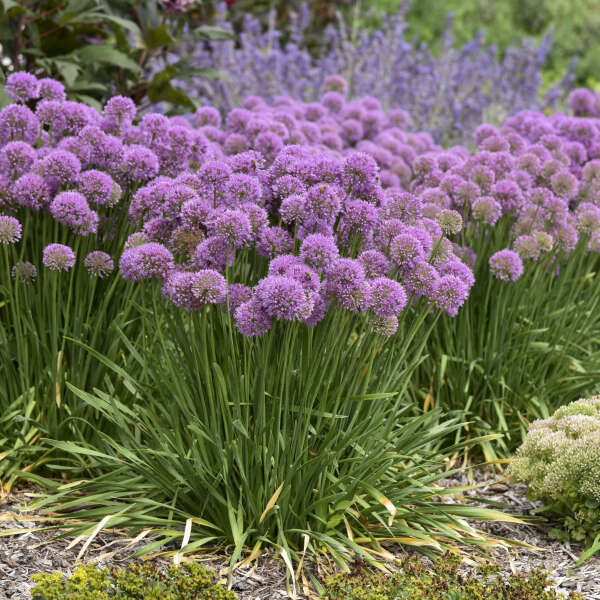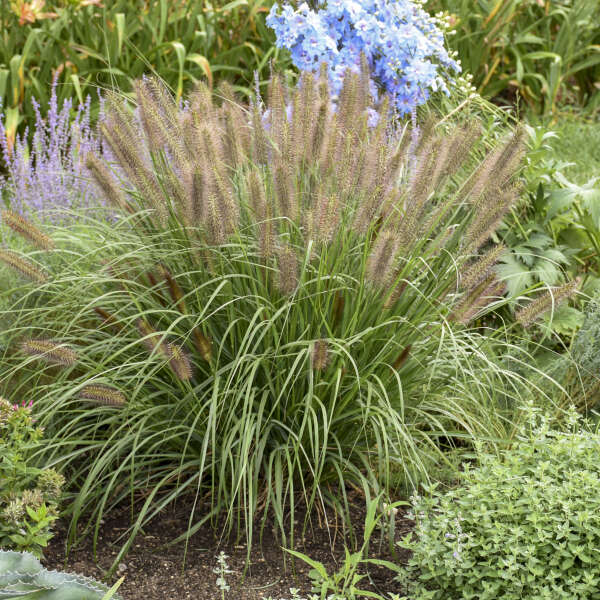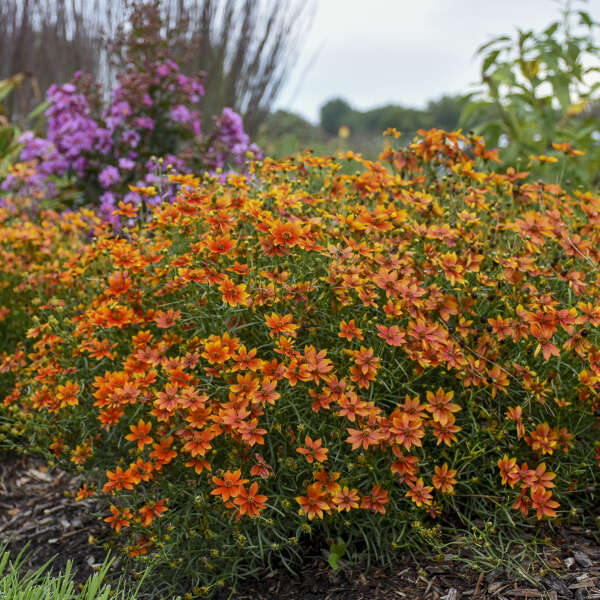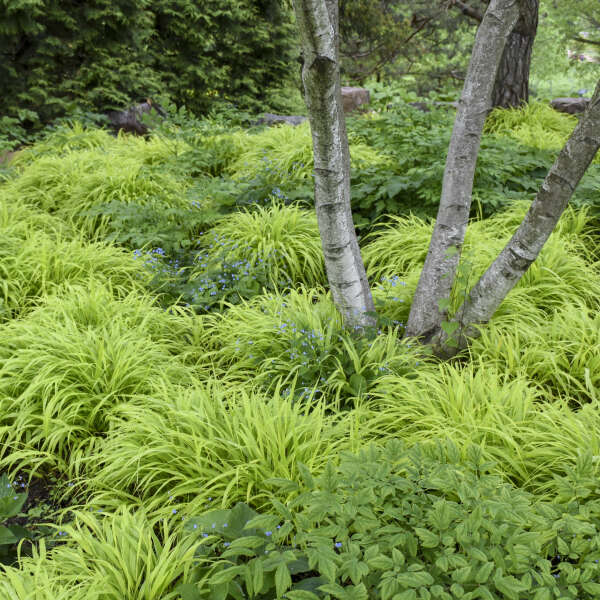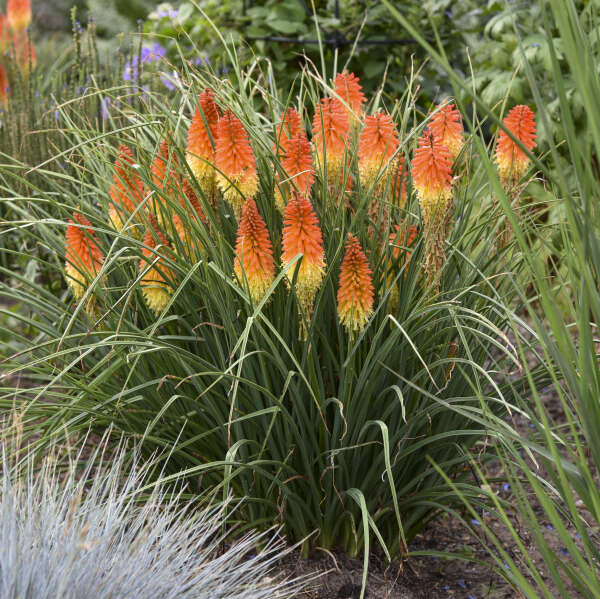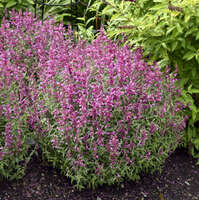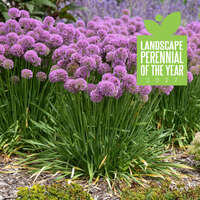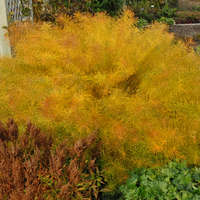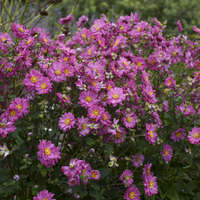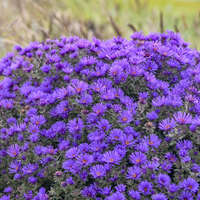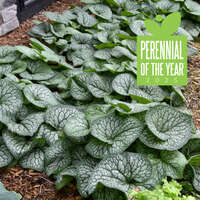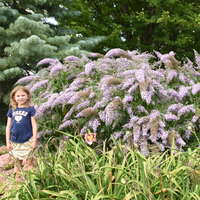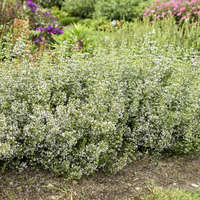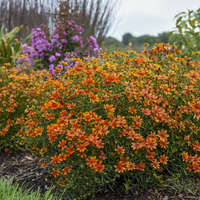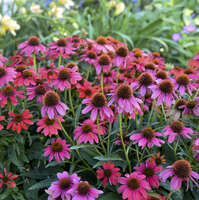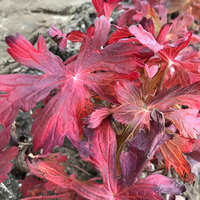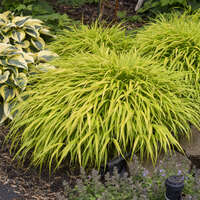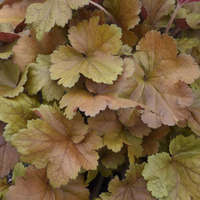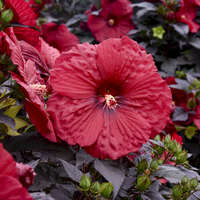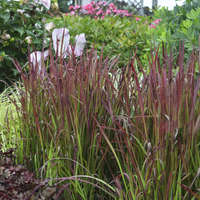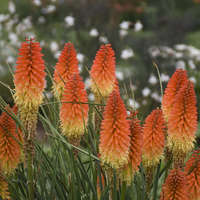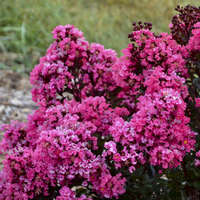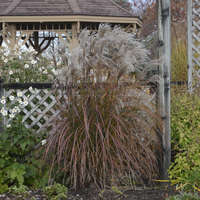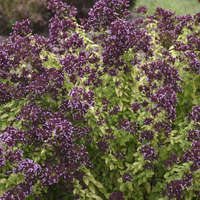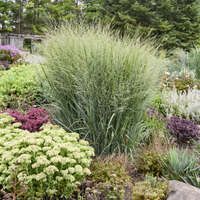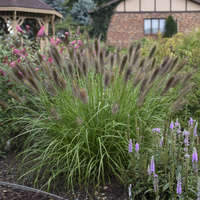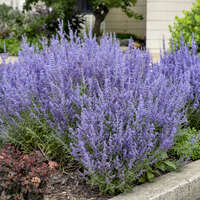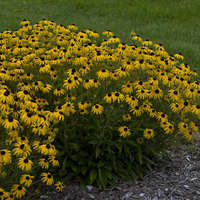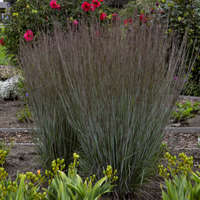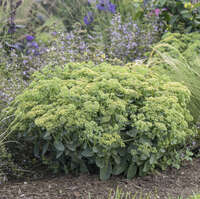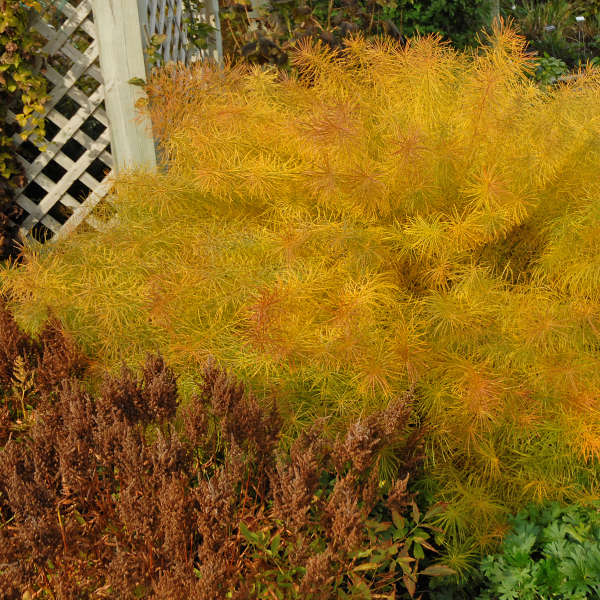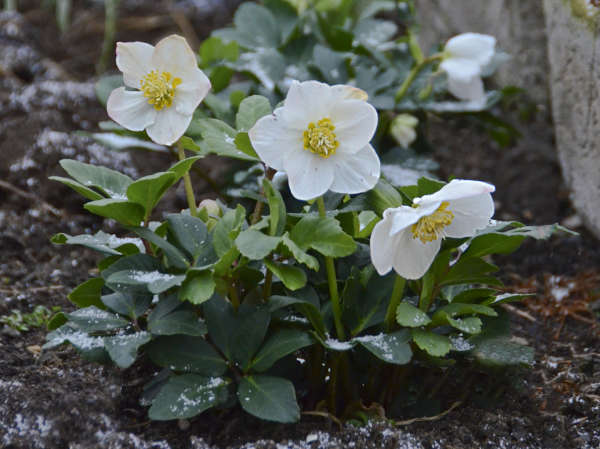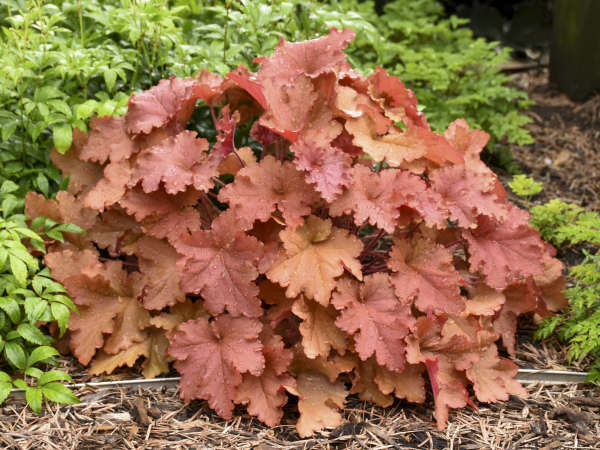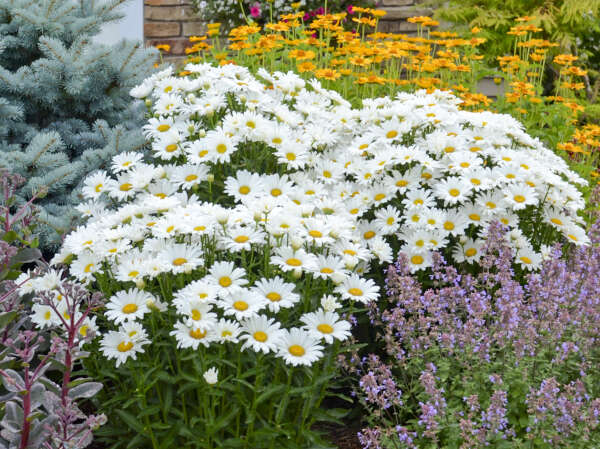Perennials for Fall Color
26 plants to provide color as your garden winds down for the season
-
1.
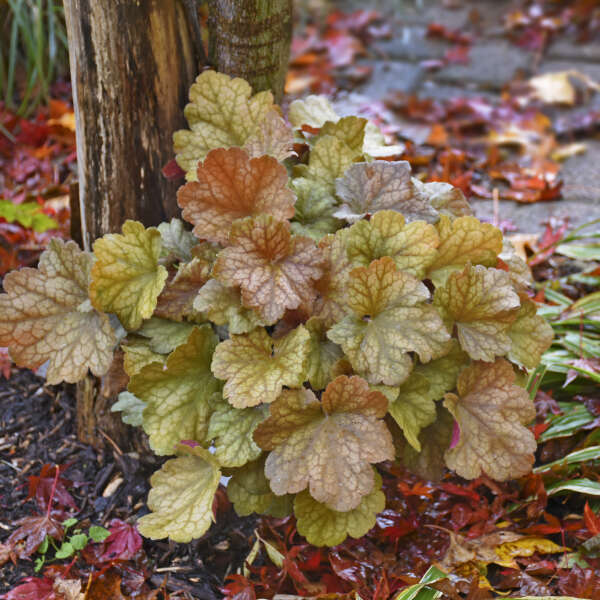
-
2.
Schizachyrium (Little Bluestem)
This grass is terrific in a border or meadow setting. It needs full sun and is tolerant of heat and humidity. Schizachyrium can grow in either acidic or alkaline soils, and can tolerate a range of moisture conditions including average to extremely dry.
Variety Pictured: Schizachyrium scoparium PRAIRIE WINDS® 'Blue Paradise'
Height: 3-3½' | Zones: 3-9 | Full Sun
Learn More

-
3.
Echinacea (Coneflower)
Praised for their cheerful brightly colored flowers, coneflowers are a mainstay in today's garden. Be sure to leave some spent blooms on the plants in the fall because their seeds provide winter food for finches and other birds. The dried seed heads also provide architectural interest in the winter.
Variety Pictured: Echinacea Lakota™ Fire
Height: 18-24" | Zones: 4-8 | Full to Part Sun
Learn More
-
4.
Heuchera (Coral Bells)
Coral bells are easy to grow and blend easily with most other perennials in the landscape. Because of their low, mounding habit, they are often used as edging along paths or in containers. Try cutting a few of the tall flower scapes for fresh bouquets.
Variety Pictured: Heuchera DOLCE® 'Toffee Tart'
Height: 8-10" | Zones: 4-9 | Full Sun to Full Shade
Learn More

-
5.
Brunnera (Heartleaf Brunnera)
Brunneras are classic perennials that are treasured for their shade tolerance and lovely blooms. They make a fantastic groundcover, though the variegated forms may be slower to spread than the species. Try growing them in containers too so they will be close at hand when you want to snip a few blooms for a spring bouquet.
Variety Pictured: Brunnera macrophylla 'Jack of Diamonds'
Height: 14-16" | Zones: 3-8 | Part to Full Shade
Learn More

-
6.
Anemone (Japanese Anemone)
A staple item for late summer and fall borders, Japanese Anenomes are graceful plants with beautiful, satiny flowers borne on tall stems above a clump of shorter basal foliage. Watching them sway in the breeze brings a feeling of calm and peace to the garden. Since they are a bit late to rise in the spring, they make an ideal cover for the dying foliage of spring bulbs.
Variety Pictured: Anemone FALL IN LOVE™ 'Sweetly'
Height: 20-26" | Zones: 4-8 | Full to Part Sun
Learn More

-
7.
Amsonia (Bluestar)
The most valuable feature of A. hubrichtii is its fall color; the entire plant turns a stunning shade of golden yellow. It makes an excellent backdrop for fall-blooming perennials such as sedums and garden mums.
Variety Pictured: Amsonia hubrichtii
Height: 3' | Zones: 4-9 | Full to Part Sun
Learn More -
8.
Perovskia (Russian Sage)
A perfect perennial for hot, dry climates and also exceptionally cold hardy. Perovskia can be used in a wide variety of environments with little attention through the season - a reason they have long been a staple of landscapers. Expect these plants to be a little later to emerge in spring, but also to offer color well into fall.
Variety Pictured: Perovskia atriplicifolia 'Denim 'n Lace'
Height: 28-32" | Zones: 4-9 | Full Sun
Learn More

-
9.
Rudbeckia (Black-Eyed Susan)
Rudbeckias like full sun, but they also will do well in partial shade. Plant them in well-drained, not overly rich soil. Remove spent flowers in order to stimulate continuous bloom.
Variety Pictured: Rudbeckia 'American Gold Rush'
Height: 22-26" | Zones: 4-9 | Full to Part Sun
Learn More -
10.
Aster (New England Aster)
Asters perform best in rich, evenly moist soil and full sun. Give them lots of room to grow; good air circulation will help to prevent powdery mildew. Though this cultivar has a bushy, compact habit, it may still require staking. To promote dense growth that is less likely to flop, pinch plants back from late spring until July 4th.
Variety Pictured: Aster 'Grape Crush'
Height: 26-30" | Zones: 26-30" | Full Sun
Learn More
-
11.
Hibiscus (Rose Mallow)
These North American native plants bring massive, tropical-looking flowers all the way to zone 4. Although later to emerge than most perennials in spring, these are fast growing plants capable of adding an inch of new growth a day. Excellent at brightening up end of season gardens.
Variety Pictured: Hibiscus SUMMERIFIC® 'Holy Grail'
Height: 4-4½' | Zones: 4-9 | Full to Part Sun<'p>
Learn More

-
12.
Panicum (Switch Grass)
Switch grass gets its name from the peaceful swishing sound it makes when blowing in the wind. All parts of this grass are very sturdy, and will remain standing thru winter unless snows are heavy. This provides important cover for birds during the coldest days of winter. This grass is very versitile from a design standpoint; it is effective as a specimen, in masses, for screening, alongside ponds or streams, or even in large containers.
Variety Pictured: Panicum virgatum PRAIRIE WINDS® 'Totem Pole'
Height: 6' | Zones: 4-9 | Full Sun
Learn More

-
13.
Sedum (Autumn Stonecrop)
Tall, upright sedums form substantial clumps of foliage which can be substituted for shrubs in the landscape. Their stout, sturdy stems support the massive flower heads which develop in summer and burst into bloom in fall. If left standing, they provide winter interest and food for birds.
Variety Pictured: Sedum 'Lemonjade'
Height: 16-18" | Zones: 3-9 | Full Sun
Learn More

-
14.
Origanum (Ornamental Oregano)
This beautiful ornamental herb will brighten up your landscape! When planted in full sun, the leaves of 'Drops of Jupiter' are chartreuse yellow. Later in the summer, mauve pink flowers are held on purple calyxes. The calyxes hold after the flowers are spent and extend the attractiveness late into fall.
Variety Pictured: Origanum 'Drops of Jupiter'
Height: 24" | Zones: 4-9 | Full Sun
Learn More

-
15.
Calamintha (Calamint, Lesser Catmint)
This sun-loving perennial is the perfect choice for attracting pollinators, since it blooms from early summer until frost. Tiny, white flowers cover the bushy habit. Since this is in the mint family, the leaves carry a mint scent. Perfect for rock garden enthusiasts and herb gardens. Use in the landscape as you would Nepeta (Catmint).
Variety Pictured: Calamintha nepeta ssp. nepeta
Height: 12-16" | Zones: 5-9 | Full Sun
Learn More -
16.
Miscanthus (Maidenhair Grass)
Miscanthus is versatile from a design standpoint; it can be used as a specimen, for massing or screening, in large containers, or at the pond's edge. Plant this grass where its wonderful winter interest can be enjoyed.
Variety Pictured: Miscanthus sinensis 'Oktoberfest'
Height: 6-7' | Zones: 5-9 | Full to Part Sun
Learn More -
17.
Lagerstroemia (Crapemyrtle)
Crapemyrtle have long been a popular flowering shrub in the south, and it's time that these beautiful flowering shrubs made a splash in the Northern market! Hardy new selections behave more like a perennial in northern zones and are an excellent late season pollinator plant.
Variety Pictured: Lagerstroemia BARISTA® 'Brew Ha Ha'
Height: 2-2½' | Zones: 6-9 | Full Sun
Learn More
-
18.
Buddleia (Butterfly Bush)
Butterfly Bushes have certainly earned their place in the garden over the years, and its easy to see why. Just when we need a breath of fresh air in the late summer heat, they happily burst into bloom. At a time when many other plants are already spent, buddleias are just beginning their show. Their passive coloring and texture makes a wonderful backdrop for perennials, and you'll love the butterflies, bees, and hummingbirds that flock to their honey-scented blossoms.
Variety Pictured: Buddleia 'Grand Cascade'
Height: 5½-6' | Zones: 5-10 | Full Sun
Learn More
-
19.
Vernonia (Ironweed)
Vernonia, or Ironweed, is not commonly offered in the perennial trade, but it is a native perennial worth noting. ‘Southern Cross' breaks the mold of the typical tall and massive Vernonia species by producing a relatively short, vase-like habit of long, thin leaves, similar in look to Amsonia hubrichtii.
Variety Pictured: Vernonia 'Southern Cross'
Height: 4-4½' | Zones: 4-9 | Full Sun
Learn More -
20.
Imperata (Japanese Blood Grass)
Standing under two feet tall, it is best used as a filler in sunny borders or as a thriller in combination containers. This grass spreads slowly by underground runners and is typically not invasive in northern and eastern climates. It spreads more quickly in the southern and southeastern US and care should be taken to contain its growth in those regions.
Variety Pictured: Imperata cylindrica 'Red Baron'
Height: 18-20" | Zones: 5-9 | Full Sun
Learn More -
21.
Agastache (Anise Hyssop)
Agastache are well-adapted to thrive in dry soils and is right at home in rock gardens and xeric container plantings where it will attract hummingbirds, butterflies, and honeybees. This is one of the easiest perennials to grow.
Variety Pictured: Agastache 'Rosie Posie'
Height: 18-22" | Zones: 6-9 | Full Sun
Learn More
-
22.
Geranium maculatum (Bloody Cranesbill)
This bronze-leafed perennial may look like the species Geranium pratense, but is actually derived from Geranium maculatum, a woodland perennial and one of the few species in cultivation native to North America. This forms an upright habit topped with beautiful blue flowers. In the fall, the foliage turns bright red here in zone 6.
Variety Pictured: Geranium maculatum 'Crane Dance'
Height: 24-28" | Zones: 4-8 | Full to Part Sun
Learn More
-
23.
Allium (Ornamental Onion)
Alliums are charming plants for the rock or herb garden. When the foliage is bruised, it smells like onions since they are in the onion family. Butterflies and honeybees adore the flowers' sweet nectar but deer and rabbits steer clear of this perennial beauty.
Variety Pictured: Allium 'Serendipity'
Height: 15-20" | Zones: 4-8 | Full to Part Sun
Learn More

-
24.
Pennisetum (Fountain Grass)
Pennisetum prefers to be grown in rich loamy soil with good drainage and full sun or light shade. However, it will grow in rocky or sandy soil as long as it remains fairly moist. This grass resents having "wet feet".
Variety Pictured: Pennisetum alopecuroides 'Puppy Love'
Height: 3036" | Zones: 5-9 | Full Sun
Learn More
-
25.
Coreopsis (Tickseed)
Coreopsis is easy to grow, making it a good choice for beginners. One plant will provide you with long-lasting cut flower bouquets all summer long.
Variety Pictured: Coreopsis verticillata SIZZLE & SPICE® 'Crazy Cayenne'
Height: 15-18" | Zones: 5-9 | Full Sun
Learn More
-
26.
Hakonechloa (Hakone Grass, Japanese Forest Grass)
Hakonechloa is grown mainly for its beautiful foliage, though it does produce seed heads. Tiny, inconspicuous reddish brown flower spiklets appear in airy clusters from late summer thru early fall.
Variety Pictured: Hakonechloa macra 'All Gold'
Height: 9-14" | Zones: 5-9 | Part to Full Shade
Learn More -
27.
Kniphofia (Red Hot Poker)
Commonly called Red Hot Poker or Torch Lily for their tall flower spikes. These South Africa natives offer tremendous garden value by combining grass-like foliage with tall flower scapes. An excellent perennial for the middle of the border.
Variety Pictured: Kniphofia PYROMANIA® 'Backdraft'
Height: 2½-3' | Zones: 5b-9 | Full Sun
Learn More

